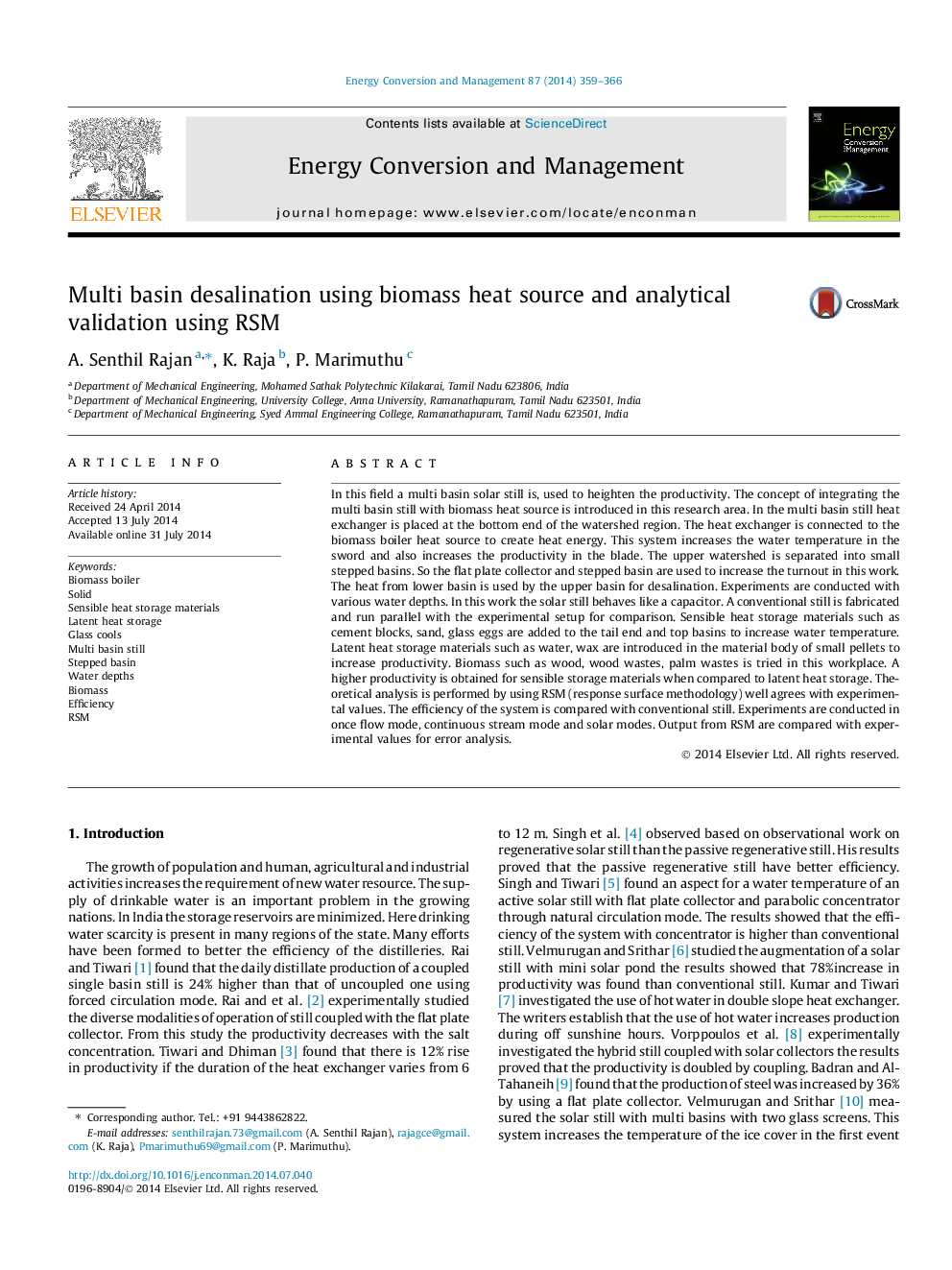| کد مقاله | کد نشریه | سال انتشار | مقاله انگلیسی | نسخه تمام متن |
|---|---|---|---|---|
| 760707 | 1462875 | 2014 | 8 صفحه PDF | دانلود رایگان |

• Biomass boiler is coupled with multi basin solar still.
• Top basin is divided into small stepped basins.
• Surface response method is used for analytical validation.
• Biomass is eco-friendly.
• Higher productivity than conventional still.
In this field a multi basin solar still is, used to heighten the productivity. The concept of integrating the multi basin still with biomass heat source is introduced in this research area. In the multi basin still heat exchanger is placed at the bottom end of the watershed region. The heat exchanger is connected to the biomass boiler heat source to create heat energy. This system increases the water temperature in the sword and also increases the productivity in the blade. The upper watershed is separated into small stepped basins. So the flat plate collector and stepped basin are used to increase the turnout in this work. The heat from lower basin is used by the upper basin for desalination. Experiments are conducted with various water depths. In this work the solar still behaves like a capacitor. A conventional still is fabricated and run parallel with the experimental setup for comparison. Sensible heat storage materials such as cement blocks, sand, glass eggs are added to the tail end and top basins to increase water temperature. Latent heat storage materials such as water, wax are introduced in the material body of small pellets to increase productivity. Biomass such as wood, wood wastes, palm wastes is tried in this workplace. A higher productivity is obtained for sensible storage materials when compared to latent heat storage. Theoretical analysis is performed by using RSM (response surface methodology) well agrees with experimental values. The efficiency of the system is compared with conventional still. Experiments are conducted in once flow mode, continuous stream mode and solar modes. Output from RSM are compared with experimental values for error analysis.
Journal: Energy Conversion and Management - Volume 87, November 2014, Pages 359–366